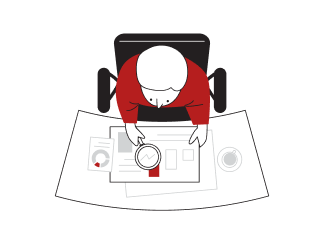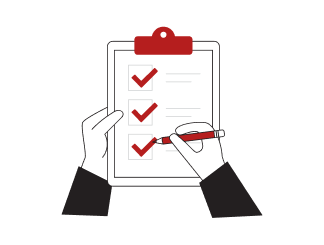Needs Analysis
-
 1
1Diagnose Existing Processes and Jobs
- Understand strategic goals, key challenges and opportunities for Job Redesign
- Understand key challenges and pain points in existing HR processes
- Develop a roadmap for the Job Redesign effort
Job Analysis & Redesign
-
 2
2Select Job Redesign Intervention
- Conduct job analysis to understand work processes and impacted job roles that have the largest opportunity for redesign
- Identify possible modifications through:
- Job tasks and responsibilities
- Work flows
- Physical working environment
- Equipment, tools and/ or technology application
- Identify possible modifications
-
 3
3Identify Priority and Impact
- Once Job Redesign interventions are shortlisted, prioritise the modifications based on the resources required, impact to business as well as impact on the workforce
Transition Planning & Implementation
-
 4
4Develop Action Plan
- Map out a list of key activities to successfully roll out the Job Redesign effort
- Assign a person-in-charge and establish timelines to ensure success and sustainability of Job Redesign efforts
-
 5
5Conduct Job Redesign Implementation
- Pilot Job Redesign recommendations
- Conduct job shadowing/activity analysis to observe the redesigned job roles and adopted changes
-
 6
6Post-Job Redesign Implementation Analysis
- Assess effectiveness through key metrics and Key Performance Indicators (KPIs):
- Increase in productivity (e.g. decrease in manning ratio, increased sales per employee, value-add per worker)
- Improvements in customer experience
- Assess effectiveness through key metrics and Key Performance Indicators (KPIs):


